- Home
- Michael Wallace
The Red Sword- The Complete Trilogy
The Red Sword- The Complete Trilogy Read online
Table of Contents
Book One: The Red Sword
Chapter One
Chapter Two
Chapter Three
Chapter Four
Chapter Five
Chapter Six
Chapter Seven
Chapter Eight
Chapter Nine
Chapter Ten
Chapter Eleven
Chapter Twelve
Chapter Thirteen
Chapter Fourteen
Chapter Fifteen
Chapter Sixteen
Chapter Seventeen
Chapter Eighteen
Chapter Nineteen
Chapter Twenty
Chapter Twenty-One
Chapter Twenty-Two
Chapter Twenty-Three
Chapter Twenty-Four
Chapter Twenty-Five
Chapter Twenty-Six
Chapter Twenty-Seven
Book Two: The Black Shield
Chapter One
Chapter Two
Chapter Three
Chapter Four
Chapter Five
Chapter Six
Chapter Seven
Chapter Eight
Chapter Nine
Chapter Ten
Chapter Eleven
Chapter Twelve
Chapter Thirteen
Chapter Fourteen
Chapter Fifteen
Chapter Sixteen
Chapter Seventeen
Chapter Eighteen
Chapter Nineteen
Chapter Twenty
Chapter Twenty-one
Chapter Twenty-two
Chapter Twenty-three
Chapter Twenty-four
Chapter Twenty-five
Chapter Twenty-six
Chapter Twenty-seven
Chapter Twenty-eight
Book Three: The Emerald Crown
Chapter One
Chapter Two
Chapter Three
Chapter Four
Chapter Five
Chapter Six
Chapter Seven
Chapter Eight
Chapter Nine
Chapter Ten
Chapter Eleven
Chapter Twelve
Chapter Thirteen
Chapter Fourteen
Chapter Fifteen
Chapter Sixteen
Chapter Seventeen
Chapter Eighteen
Chapter Nineteen
Chapter Twenty
Chapter Twenty-One
Chapter Twenty-Two
Chapter Twenty-Three
Chapter Twenty-Four
Chapter Twenty-Five
Chapter Twenty-Six
Chapter Twenty-Seven
Chapter Twenty-Eight
Chapter Twenty-Nine
Chapter Thirty
Chapter Thirty-One
The Red Sword Trilogy
by Michael Wallace
Book 1: The Red Sword
Book 2: The Black Shield
Book 3: The Emerald Crown
Cover art by Miguel Coimbra and Jeff Brown
Book One: The Red Sword
Chapter One
Markal was tending the severed head of his master when a knight stepped into the garden with a drawn sword. Sunlight reflected off the knight’s gleaming breastplate, blinding the apprentice wizard, who stood staring, his work covering the dead man’s head forgotten.
There was violence in the intruder’s posture, and fear rose in Markal’s breast. The man’s sword gleamed red, blood dripping from the tip to splatter the flowers, and from there falling to pollute the sacred ground of the gardens. Clods of dirt fell from the spade gripped in Markal’s suddenly sweating hands.
By the Brothers, he’s slain the keepers.
The knight could not have reached this inner sanctum without attacking and killing the keepers who protected this space. And what of the other apprentices, Markal’s fellow students in the gardens of Memnet the Great? Had the knight butchered them, too? The acolytes? Was there nobody left to oppose the intruder but Markal?
He searched his memory for a spell that would turn aside this murderous figure. Even a bit of trickery. But how had the man found the gardens in the first place? He should have been stopped at the bridge, should have been turned away at the north gate. And Markal was surrounded by wards and runes that should have destroyed any enemy who managed to make it inside. Yet somehow this man seemed invulnerable.
“Where is he?” the knight asked, voice sharp, demanding, and Markal received his second surprise. The intruder was no man. She was a woman.
She stepped toward Markal and turned in such a way that the sun stopped reflecting off the armor and cast its warm, bathing light against the brick wall at her back, at the fruiting vines that snaked to the top of the wall, and across the woman’s face. The woman had pale skin, light blue eyes, and a long braided knot of golden-colored hair that trailed down her back.
She was beautiful and strange and terrifying all at once. Markal had seen blue eyes before, even wheat-colored hair in the markets of Syrmarria on those who were said to carry the blood of those who lived beyond the western mountains, but nobody like this, and he knew he was facing a full-blooded barbarian warrior.
The woman was tall, lean, and muscular, but her two-handed sword was at least four feet long, and wielding it would have taxed the strongest of warriors. Yet she carried it lightly, as if it were a rapier or spear.
“I asked you a question, boy.” Her accent was strange, her vowels elongated, the ends of the words swallowed. “Where is he?”
“Who?” Markal forced himself to remain calm. “There is nobody here but me. Why have you come, to kill me?”
Her eyes hardened as she stepped toward him. “If I must.”
“Like the others? Were you forced to kill them, too?”
“What others?”
“The keepers, the acolytes. You murdered them, didn’t you?”
Markal nodded toward the sword, but he’d been mistaken and it wasn’t dripping with blood after all. There was only a clean, gleaming blade. Some trick of the light? No, he’d seen red drops splatter on the flowers. But there was no blood there, either, only perfect blossoms lifting their cool yellow faces gratefully to the sun.
Another step forward. “Where is the wizard?”
Markal lifted his spade defensively, even as he recognized the foolishness of the gesture. He didn’t look at the freshly turned soil at his feet. It was damp and dark, worms still burrowing back into the ground. There were defenses in this walled garden, including the tree beneath which she stood. He could awaken it, test her abilities. Yet he was stunned that she’d made it this far, and afraid she’d shrug off any attempt.
“What wizard?” he asked.
“Don’t toy with me, boy. I will kill you if I must, kill them all, if it is the only way to force your master to face me.”
Markal thrust his spade into the soil and wiped his hands on his already filthy robes. “There is no wizard here, not in these gardens. Here you will only find apprentices such as myself, and the keepers of the gardens. We all have some small measure of magic, but there are none who can claim the title of wizard. Not here, and perhaps nowhere in Aristonia. Do you have a name of someone in particular? I might send you on your way.”
A frown crossed her brow, making her seem more severe than ever. “The great one—I do not know his name. But he is here.” She waved her sword. “In your gardens. I have been called here. I know who he is and what he does.”
“Do you? I’m not sure I know that myself.”
A smile crossed the woman’s face, as if she had caught him in a lie. “So you do know of th
e wizard.”
She lifted the sword above her shoulders, but it was only to slide it into a long scabbard at her back. Markal studied the woman more closely, and noted the road grime on her face and hands, the unfastened strap of her bracer, and the scuffed appearance of her breastplate. That first impression of a knight stepping gleaming from the sunlight had been very wrong indeed.
Moving deliberately, Markal stepped up to the fruiting vines growing against the brick wall to his left. He was in one of many small interior spaces in the larger gardens, but perhaps the most potent, and that could serve him well. He plucked a round, ruby-red fruit.
“You’ve been long on the road. This plum will refresh you.”
She didn’t take it. “Plums grow on trees, not vines.”
“Not this kind. Eat it. It will help.” To show her that it was harmless, he took a bite. A sweet, juicy flavor exploded in his mouth. He picked a second one and held it out.
She took the plum and turned it over in her hand. “What is this, some spell, some trickery?”
“Not at all. I told you, I’m an apprentice—I have little magic. It is the power of this garden—it will restore.”
“Where is he?” She cast the fruit aside. “The great wizard? You have admitted he is here.”
“He was here.” Markal let his own fruit drop. “These were his gardens. But you are too late to see the master. Another assassin has beat you to it.”
“How was he killed? Poison, strangulation, magic?”
“Why does that matter?”
“It matters, as well you know.”
“The assassin cut off my master’s head, threw his body over a horse, and escaped into the desert.” This was all true, and yet only one small part of the story.
“What did the assassin look like?”
Markal shook his head. “I didn’t see him. Anyway, it doesn’t matter. There have been many would-be assassins over the years—they always failed in the past. This time, a man cut his way to my master’s side and finished the business for good.”
“Tell me. Did the assassin have a gray face and dead eyes?”
Markal blinked. Yes, that was precisely what Nathaliey had told Markal, but how would this barbarian know that? She looked and sounded different from the previous attacker in every way imaginable, yet there was so much violence about her that they were clearly on the same mission, to destroy Memnet the Great.
He must have given away his answer in his expression, because she pushed on. “You have a shrine, a temple, do you not?”
“The Golden Pavilion, yes. But you won’t find him there. I told you, he’s dead.”
“And where is his body?”
“Carried off. I said that already.”
“His head?”
“Burned, as is the custom in Aristonia.” The lie tasted like dust on Markal’s tongue, and from her sharpened gaze, he thought she’d sensed he was lying as well. “Leave this place. You will only find your death in this garden.”
“One moment you profess weakness, the next boast of your strength. Who will kill me, you?” She smiled at this.
“Memnet the Great may be dead, but magic infuses his land. The gardens themselves will reject you.”
“They tried already. I battered down their defenses.”
“Indeed.” That was the great and terrible mystery. Such a thing had never happened before.
The woman thrust out her chin, and her eyes glinted. “I am Bronwyn of Arvada, a paladin of Eriscoba, and I carry the red sword. No wizard, warrior, or garden can bend me from my purpose.”
She turned away from him as if he were of no consequence and inspected the walled garden. Fruiting vines covered the walls, and beds of flowers lined the stone walkway, their blossoms attended by honeybees. Birds warbled from the branches of the fruit trees around the edges. Water burbled from a fountain in the middle of the enclosed space, and though the bulk of the khalifates were in the midst of a crippling drought, the wells and streams of Aristonia still ran clear.
Bronwyn of Arvada, as she’d styled herself, studied the other three paths and finally fixed on the one flanked by a pair of peach trees, as if drawn there. How had she known? It led to a woodland path, and beyond that, the Golden Pavilion on the edge of the lake. She set off in that direction with long, confident strides. One hand reached over her shoulder to touch the pommel of the sword strapped on her back. She passed through the trees and disappeared.
Markal let out his breath and looked down at the fresh dirt at his feet. Movement caught his eye from the shaded wall to his left, but this time he wasn’t surprised by the figure stepping toward him.
It was a tall man in a robe, who pulled back his cowl as he stepped into the sunlight. His lips pinched together in a thin, displeased line, and he let out a long, exaggerated sigh as he peered down at Markal over a hooked nose.
“How much did you hear?” Markal asked.
“Enough,” Chantmer said. “Were you so frightened you had to blurt every secret, give her every advantage?”
A defensive tone entered Markal’s voice. “I told her nothing.”
“Indeed? You told her about the assassin, about the magic of the gardens, even our master’s name.”
“Nothing of consequence.”
“These are the things that break our disguise, that reveal us to the world.”
“We were already revealed. She crossed the bridge and entered the gardens. How did that happen? Why didn’t the runes and wards cast her out?”
“They must have weakened since the master died,” Chantmer said.
“The master’s death wouldn’t change that, not so quickly. They defend the land, the order. Many are older than Memnet himself.”
“If you knew the answer to the question, why did you ask it? Besides, I think you’re wrong. What other explanation is there?”
Markal had no answer for this, and Chantmer looked down at him with eyebrows raised.
“Well then,” the taller apprentice told Markal. “What spell did you cast on the fruit?”
“I didn’t. I was afraid she would detect it—did you see her gaze? By the Brothers, she could nearly read my thoughts. I thought the plum itself would be enough.”
“Anyway, she wouldn’t eat it. A worthless attempt.”
Markal’s face felt hot. “What would you have done?”
“Magic,” Chantmer said. “Our master praises your knowledge—very well then, put it to use. Make the barbarian sleep, set her mind on fruitless paths. Send her east on the road until she is far from here. Something. Or are you only an archivist after all?”
Are you only an archivist?
When Memnet the Great had put the question to Markal, it prodded him, inspired him to work harder. From Chantmer’s lips, it was an insult. Yet it was true enough. Apprentices fell from the path when their magic or knowledge failed. Those who couldn’t master the knowledge became acolytes. Those whose power fell short became keepers or archivists. Of these, the archivists were the weakest, all knowledge and little magic. An ability to read ancient texts, to hold the slippery spells and incantations in one’s head, but no capacity for calling up the reserves that would bring them to life.
“We have to stop her,” Markal said. “She knows too much, she senses. She didn’t go to the pavilion first, she came here. Somehow, she knew about the master’s head. And how did she find the gardens, anyway? She’s no mage, she’s a paladin. Not even the high king can find us anymore, so how would Bronwyn? Someone must have sent her.”
“We agree on that much. She must be stopped.” Chantmer stared at the mound of dirt at Markal’s feet, then looked up and held his gaze. “Well?”
Markal picked up the spade and held it protectively. “No. It is too early.”
“You looked?”
“I lifted the dirt. His eyes are closed.”
“And below the severed head?” Chantmer asked. “What did you see?”
“The soil holds its magic—we must trust it.”
“It’s not time, and you are not in command.”
“And neither are you,” Chantmer said.
Indeed, that was a critical lack in this garden. Who would lead? Some of the older keepers had been here the longest, a few more than half a century. But they had once been apprentices themselves, only to fall aside as their magic reached its limit, left to age and mature in wisdom, but not skill. How would they command the garden’s magic? Yet the apprentices were not ready, either. Otherwise they wouldn’t be apprentices.
With Memnet’s death there was no leader of the Order of the Crimson Path. Perhaps Chantmer would assume that role someday, perhaps not, but for the moment Markal had no intention of obeying his companion’s ill-informed whims.
“Where are the others?” Markal asked.
Chantmer let his hand slowly fall, but didn’t look away from the mound of dirt holding the master’s head. “Nathaliey left this morning for Syrmarria.”
“She won’t find anything new.”
“So you have the entire library committed to memory now?” Chantmer’s left eyebrow arched. “I think not. As for Narud, he is communing with mice again. Or maybe it was voles. He’s of no use to us.”
Markal wasn’t so sure. Chantmer dismissed the other apprentice as being of little practical value, and his curiosity about the natural world as being a strange, pointless eccentricity, but there was a wild, uncontrolled magic pulsing from Narud that was as strong as Chantmer’s not-inconsiderable native abilities.
“We’ll have to enlist the keepers,” Markal said.
“And do what with them, precisely?”
“We distract the enemy while the keepers raise the wards. The keepers could conceal the entrance to this inner garden until we can get rid of her.” Markal nodded, beginning to imagine the spells they could use: sanctify, disorder, and disconcert. It would be costly. “Cleanse the very memory of its existence from the woman’s mind.”
“This entire garden was supposedly hidden,” Chantmer said. “Yet the barbarian strolled in unopposed.” He stroked his beard. “She’s a barbarian, which means she came through the mountains, where the king’s men are building their fortifications, yet that didn’t stop her. She broke down the wards, and now she’s in the gardens. No, your plan won’t work. She won’t be put off by defensive magic.”

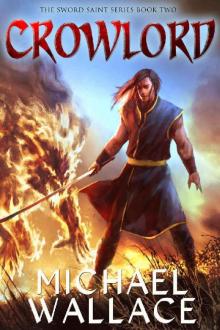 Crowlord (The Sword Saint Series Book 2)
Crowlord (The Sword Saint Series Book 2) Crowlord
Crowlord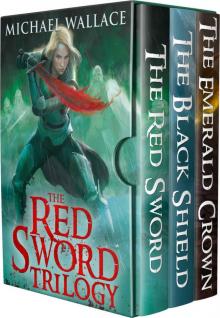 The Red Sword- The Complete Trilogy
The Red Sword- The Complete Trilogy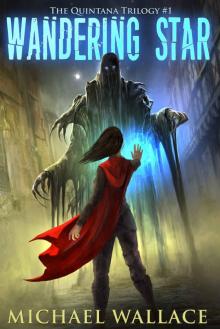 Wandering Star (The Quintana Trilogy Book 1)
Wandering Star (The Quintana Trilogy Book 1)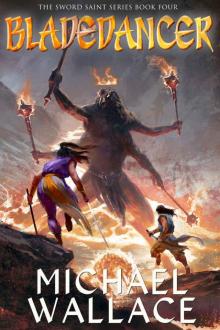 Bladedancer
Bladedancer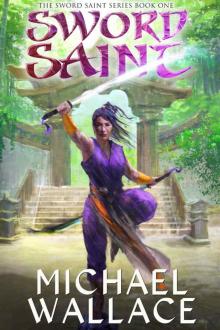 Sword Saint
Sword Saint The Alliance Trilogy
The Alliance Trilogy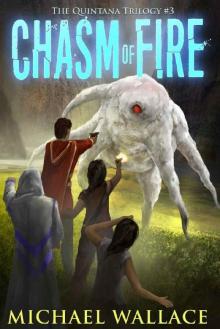 Chasm of Fire
Chasm of Fire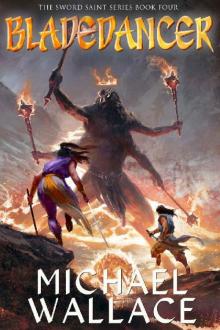 Bladedancer (The Sword Saint Series Book 4)
Bladedancer (The Sword Saint Series Book 4) The Devil's Deep
The Devil's Deep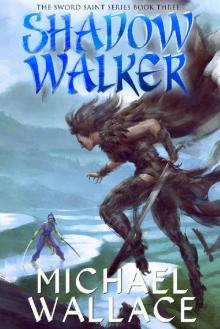 Shadow Walker (The Sword Saint Series Book 3)
Shadow Walker (The Sword Saint Series Book 3) Starship Blackbeard
Starship Blackbeard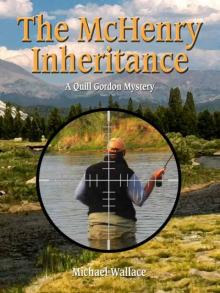 The McHenry Inheritance (Quill Gordon Mystery Book 1)
The McHenry Inheritance (Quill Gordon Mystery Book 1) Sun King (The Void Queen Trilogy Book 3)
Sun King (The Void Queen Trilogy Book 3) Blood of Vipers
Blood of Vipers Righteous - 01 - The Righteous
Righteous - 01 - The Righteous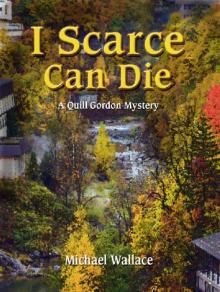 I Scarce Can Die (Quill Gordon Mystery Book 5)
I Scarce Can Die (Quill Gordon Mystery Book 5) The Devil's Cauldron
The Devil's Cauldron The Wicked (The Righteous)
The Wicked (The Righteous)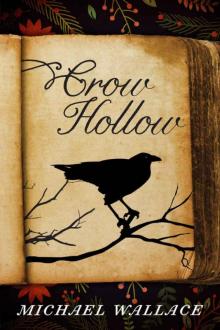 Crow Hollow
Crow Hollow Righteous03 - The Wicked
Righteous03 - The Wicked Righteous02 - Mighty and Strong
Righteous02 - Mighty and Strong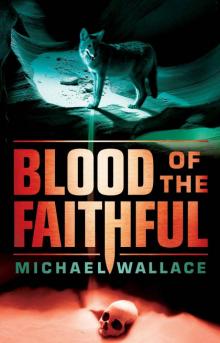 Blood of the Faithful
Blood of the Faithful Wash Her Guilt Away (Quill Gordon Mystery Book 2)
Wash Her Guilt Away (Quill Gordon Mystery Book 2) The Kingdom of the Bears
The Kingdom of the Bears The Emerald Crown (The Red Sword Trilogy Book 3)
The Emerald Crown (The Red Sword Trilogy Book 3) The Dark Citadel
The Dark Citadel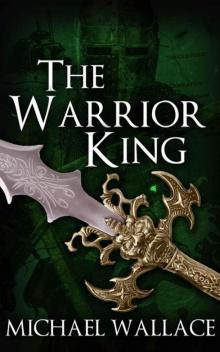 The Warrior King (Book 4)
The Warrior King (Book 4) Rebellion of Stars (Starship Blackbeard Book 4)
Rebellion of Stars (Starship Blackbeard Book 4) Righteous04 - The Blessed and the Damned
Righteous04 - The Blessed and the Damned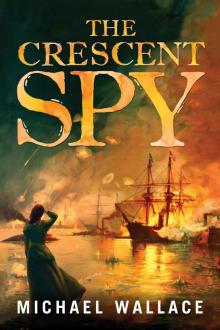 The Crescent Spy
The Crescent Spy Queen of the Void (The Void Queen Trilogy Book 1)
Queen of the Void (The Void Queen Trilogy Book 1)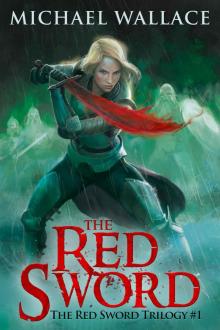 The Red Sword (The Red Sword Trilogy Book 1)
The Red Sword (The Red Sword Trilogy Book 1) The Sentinel (The Sentinel Trilogy Book 1)
The Sentinel (The Sentinel Trilogy Book 1) The Golden Griffin (Book 3)
The Golden Griffin (Book 3) The Blessed and the Damned (Righteous Series #4)
The Blessed and the Damned (Righteous Series #4) Hell's Fortress
Hell's Fortress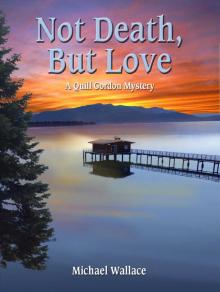 Not Death, But Love (Quill Gordon Mystery Book 3)
Not Death, But Love (Quill Gordon Mystery Book 3) Destroying Angel
Destroying Angel The Free Kingdoms (Book 2)
The Free Kingdoms (Book 2) Dragon Quadrant (The Sentinel Trilogy Book 2)
Dragon Quadrant (The Sentinel Trilogy Book 2) Shattered Sun (The Sentinel Trilogy Book 3)
Shattered Sun (The Sentinel Trilogy Book 3)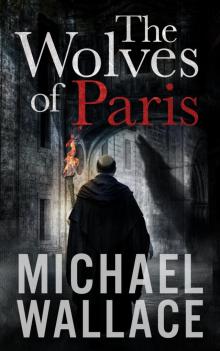 The Wolves of Paris
The Wolves of Paris Lords of Space (Starship Blackbeard Book 2)
Lords of Space (Starship Blackbeard Book 2) Dreadnought (Starship Blackbeard Book 3)
Dreadnought (Starship Blackbeard Book 3) The Village of Dead Souls: A Zombie Novel
The Village of Dead Souls: A Zombie Novel The Black Shield (The Red Sword Book 2)
The Black Shield (The Red Sword Book 2) The Daughters Of Alta Mira (Quill Gordon Mystery Book 4)
The Daughters Of Alta Mira (Quill Gordon Mystery Book 4) Mighty and Strong (The Righteous)
Mighty and Strong (The Righteous)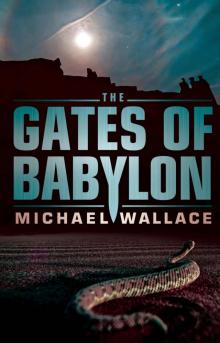 The Gates of Babylon
The Gates of Babylon